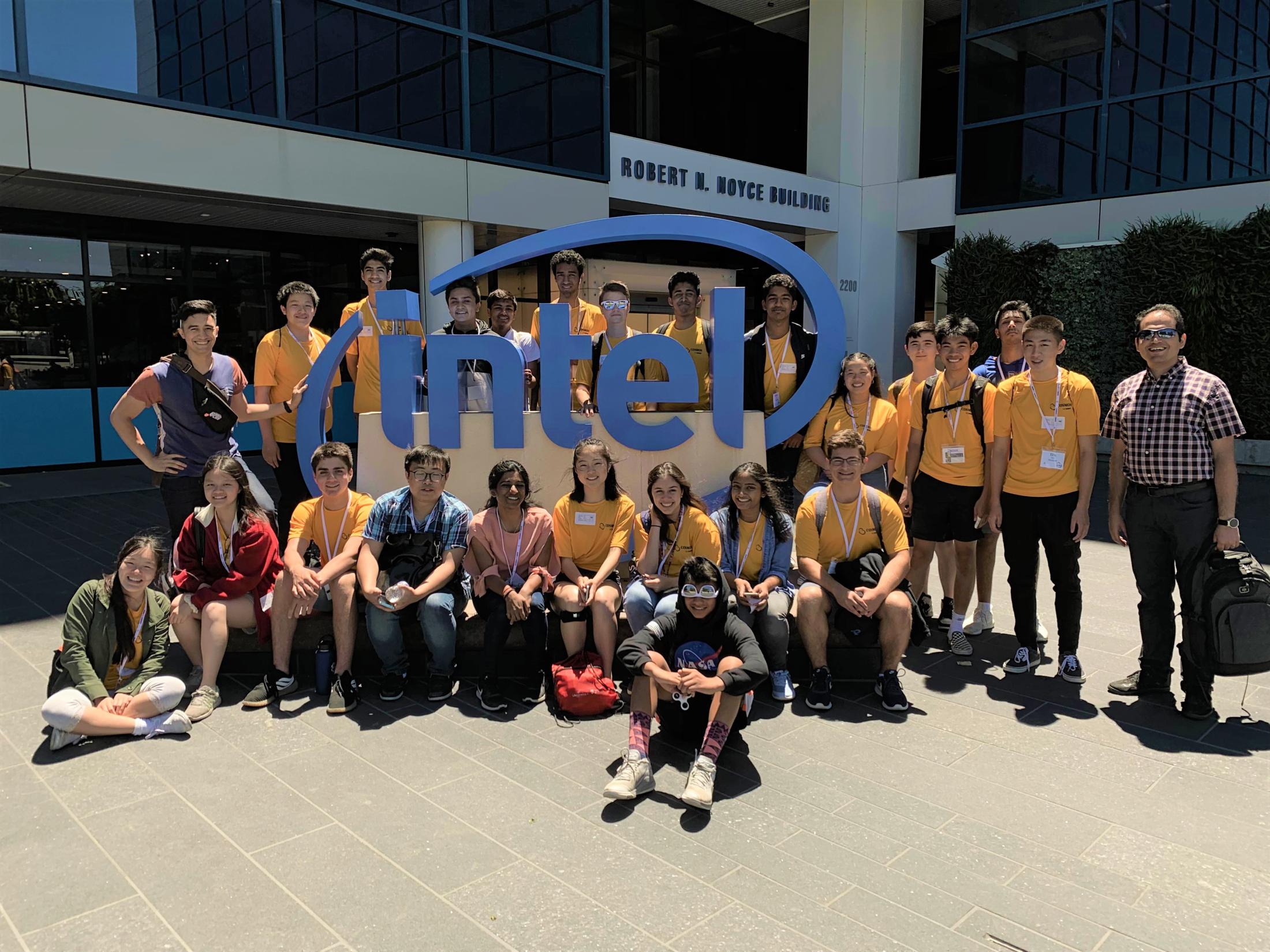
UC Davis' ECE Department Hosts High School COSMOS Educational Program in 2021
Program returned remotely with hardware and software labs
Quick Summary
- UC Davis, along with four other campuses, welcomes high schoolers to campus each year for the COSMOS math and science residential educational program.
- The ECE department created a new curriculum for COSMOS students around the Internet of Things in 2019 and adapted it for remote instruction in 2021.
Since 2001, UC Davis, among four other UC campuses, has hosted the California State Summer School for Science and Mathematics (COSMOS) program. This competitive program welcomes high school students with strong aptitude for and interest in math and science to stay for four weeks on a UC campus and take courses with plenty of opportunities for hands-on activities, go on field trips with science and engineering professors and attend distinguished lectures given by world-famous speakers from different science, technology, engineering and math (STEM) fields.
In 2019, UCD’s electrical and computer engineering (ECE) department launched a new cluster (the name COSMOS gives to a group of students studying a particular topic) around the theme of the Internet-of-Things (IoT). Covid-19 canceled the COSMOS program in 2020, then faculty ran it remotely in 2021.
“That worked quite well! Students were mostly writing code for their microprocessors, which was easier to debug than the courses that involved troubleshooting circuits. And working on Zoom prepared them for remote collaboration, which is an important work skill these days,” says Hooman Rashtian, associate professor of teaching in the ECE department.
The courses involved a quick tutorial in programming in C, then instruction on how to work with a microcontroller, sensors and WiFi module. By the end of the second week, students had finished the hardware and software labs and were preparing their final projects, which they presented in the last week of the program. There were also guest speakers who talked about research activities in IoT and applications of IoT for agricultural engineering and medical systems as well as STEM career possibilities and college admission requirements.
When the program can be held in person, the professors also take students on field trips to science museums and labs, such as the Intel Museum and the UC Davis Center for Nano-Micro Manufacturing (CNM2) and to tech companies in the Bay Area, such as Intel and Google.

The professors who teach the COSMOS courses are always impressed by the students’ ideas and their level of participation during class.
“The maker movement has inspired them,” reflects Rajeevan Amirtharajah, UC Davis electrical and computer engineering professor. “They’re much more tech savvy than before, working with Arduinos and making projects for fun. And in the group of students I taught on Zoom, at least 15 out of 20 of them turned on their webcams the whole time, participating and asking questions.”
COSMOS is a large time commitment for a professor, as they teach every day as opposed to perhaps twice a week for a college course. However, the professors who take part find the program incredibly rewarding because of the enthusiasm and creativity of the students, and many say that they learn from the students as well.
“These are the best kind of students you could have. They come up with amazing ideas,” said Rashtian. “This year one of the students modified a Roomba vacuum cleaner with a microcontroller to sound an alarm whenever it was stuck in a corner.” In 2019, two students invented a system called the 'Water Notifier' to let people living in rural villages in India in areas with unpredictable water delivery know when water had been supplied to their local well. Another team created a system using a microphone, a humidity sensor and an accelerometer to detect sleep apnea in children.
Showing students what it might be like to work in industry is a definite goal of COSMOS. Diego Yankelevich, UC Davis electrical and computer engineering adjunct professor who has taught optics courses for the program for many years, reflects on the students’ favorite field trips. “We’ve been to several places, including tech companies and Lawrence Livermore National Labs, but everyone is most fascinated by Sacramento’s McClellan nuclear reactor.”
At the reactor, students learn about diagnostic techniques to check the integrity of metal. A ‘neutron biography’ is an alternative technique to X-rays, where researchers send neutron beams onto metal and observe how they scatter for early clues that a crack is developing. This requires high-energy radiation and can be used to check the wings of aircraft and satellites. Students in Yankelevich’s optics courses learn how to solder and perform measurements during the nine or ten hours they spend in his labs. He’s always loved to tinker and would have loved to have been a COSMOS student himself.

The experience of living away from home on a college campus and meeting other students in their fields of interest is integral to the COSMOS experience. UC Davis intentionally pairs students in the engineering courses with roommates pursuing other fields of science so they can share interdisciplinary ideas.
“It’s important to help students see how they can learn from each other and interconnect the different fields of science,” says UC Davis’ COSMOS systemwide faculty executive director, professor in mechanical and aerospace engineering and mathematics Niels Gronbech-Jensen, who instructs a COSMOS cluster jointly with Diego Yankelevich. “I teach a somewhat off-the-wall curriculum, with interactive lectures. Sometimes we go off on tangents, explore topics like quantum mechanics, relativity, and other aspects of the laws of nature."
Gronbech-Jensen highlights that science is a process of inquiry that evolves over time. “We have a plan to begin with, but sometimes it changes as we investigate.” In his courses he explores the geographical and cultural paths through which knowledge has developed and traveled over time.
"We look into what we think we understand about our world, and what that means. Science here isn’t just a homework assignment, it’s much bigger than that."



